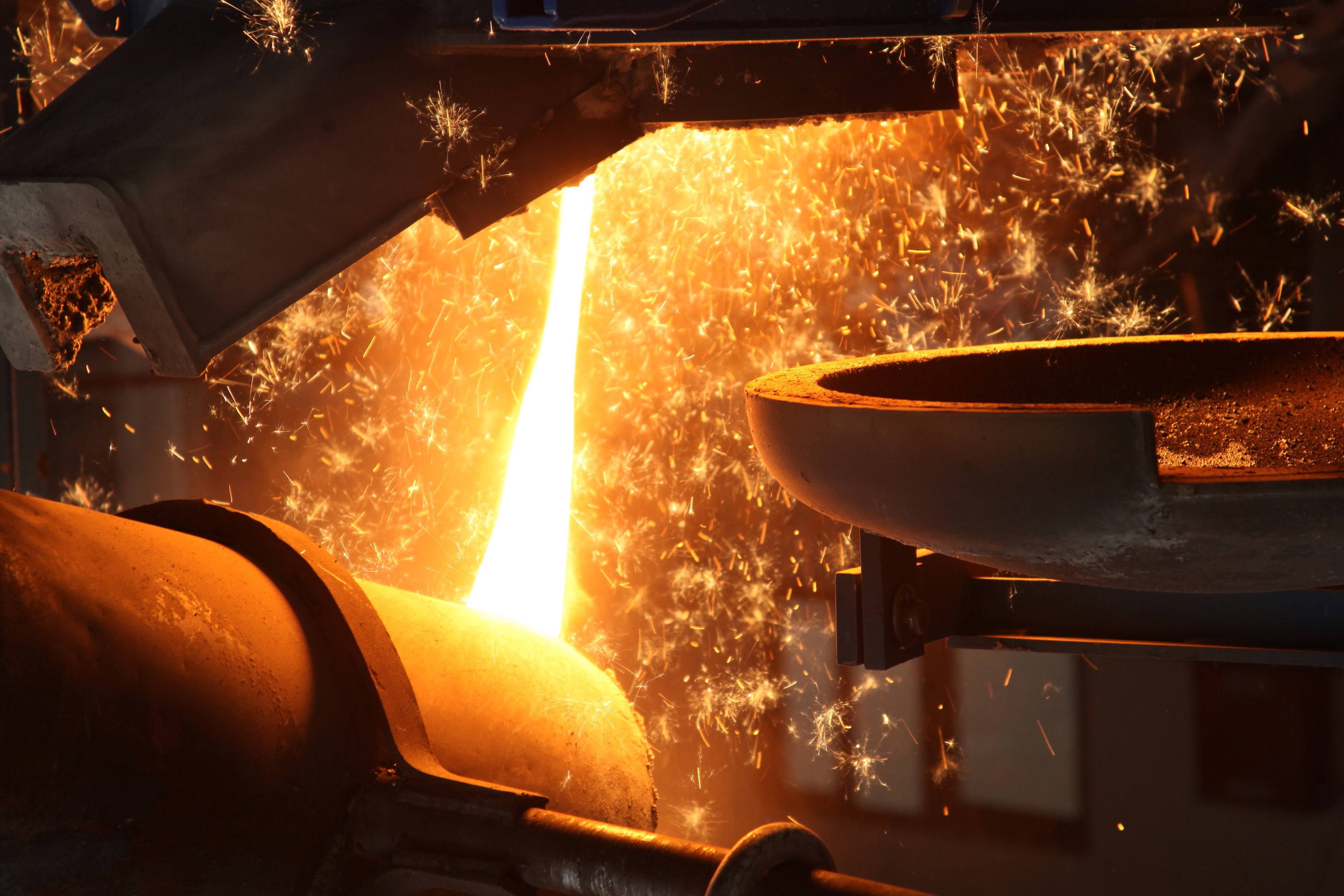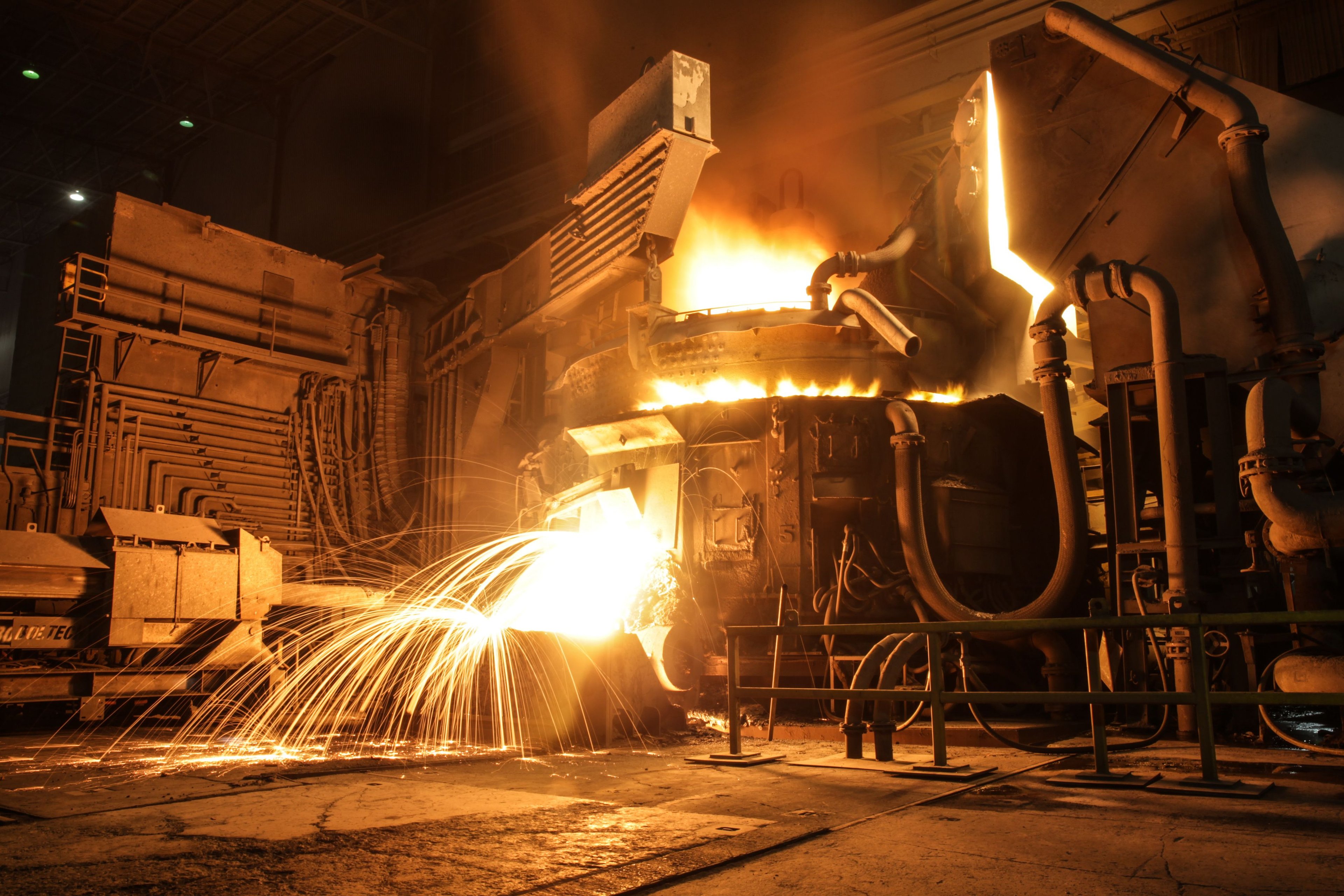Nucor (NUE +3.25%) and Steel Dynamics (STLD +3.56%) have a lot of similarities, which makes sense, since Nucor alumni founded Steel Dynamics.
That said, these two U.S. steelmakers are not interchangeable investments. Dividend investors considering stepping into the cyclical steel industry while it is dealing with some industry softness will want to carefully consider what Nucor and Steel Dynamics offer before buying either one.
Here's a quick primer.
What do Nucor and Steel Dynamics do?
From a big-picture perspective, Nucor and Steel Dynamics make steel. But the real story is how they make that steel, which is by using electric arc mini-mills. This technology uses electricity and scrap steel to make "new" steel. It is more flexible than older blast furnace technology, which uses iron ore and metallurgical coal to make primary steel.

Image source: Getty Images.
While blast furnaces can be highly profitable during industry upturns, their high operating costs mean they can bleed red ink during downturns. Electric arc mini-mills tend to have more consistent and reliable profit margins through the cycle. In other words, Nucor and Steel Dynamics have strong core operations.
On top of this strong foundation, Nucor and Steel Dynamics have both built businesses selling fabricated steel products. They basically take the commodity steel they produce and turn it into higher-margin items with more reliable demand characteristics through the steel cycle. This makes them even more robust to the normal cyclical industry downturns that happen.
Nucor and Steel Dynamics are reliable dividend stocks
When you hear the word cyclical, you should worry about dividend consistency. However, the strong fundamentals of Nucor and Steel Dynamics on the business side have proven highly valuable to dividend investors. Nucor is a Dividend King, with over 50 consecutive years of annual dividend increases behind it. Steel Dynamics, a much younger company, has increased its dividend annually for 14 straight years. So, despite operating in a volatile industry, they are reliable dividend stocks.

NYSE: NUE
Key Data Points
That said, there is an important difference between the two on the dividend front. Nucor is a large company that moves slowly and deliberately. That includes on dividends. Over the past decade, its dividend has grown at around 4% a year on an annualized basis. That is faster than the historical growth rate of inflation, so the buying power of the dividend is increasing over time. However, this is a tortoise, not a rabbit.
Steel Dynamics' dividend has grown at more than 10% a year. Compared to Nucor it is, indeed, a rabbit. That has a lot to do with Steel Dynamics' smaller size, since it is easier to grow a business when it is small than when it is large and mature.
But Steel Dynamics is also a bit more aggressive, noting that it has just entered the aluminum market. Its aluminum business uses similar technology to its steel business, so this isn't a huge reach. But it shows clearly that Steel Dynamics is a far more aggressive business.

NASDAQ: STLD
Key Data Points
Which steel mill is right for you?
Nucor and Steel Dynamics have similarly attractive steel businesses. So the core business isn't likely to be the differentiating factor for investors. And they both have solid dividend histories behind them, though being a Dividend King clearly gives Nucor some bragging rights. Nucor's yield is around 1.8% today, which is higher than Steel Dynamics' 1.5%, with both being higher than the S&P 500's smaller average of 1.3%.
The real difference here, however, is likely to boil down to the dividend growth rate, combined with the aggressiveness of management. If you are a conservative income investor who likes to buy reliable dividend stocks when they are out of favor, Nucor is likely to be the better choice.
Notably, Nucor's stock has fallen 40% from its 2024 highs, which is actually a pretty normal drawdown for the stock. Steel Dynamics, which has more attractive growth prospects for its business (because it is smaller and because it is working to expand into aluminum), is only down around 10% over the same span. But if you are looking for rapid dividend growth, Steel Dynamics may be worth a premium price. That said, either choice will leave you owning a well-run U.S. steelmaker.





